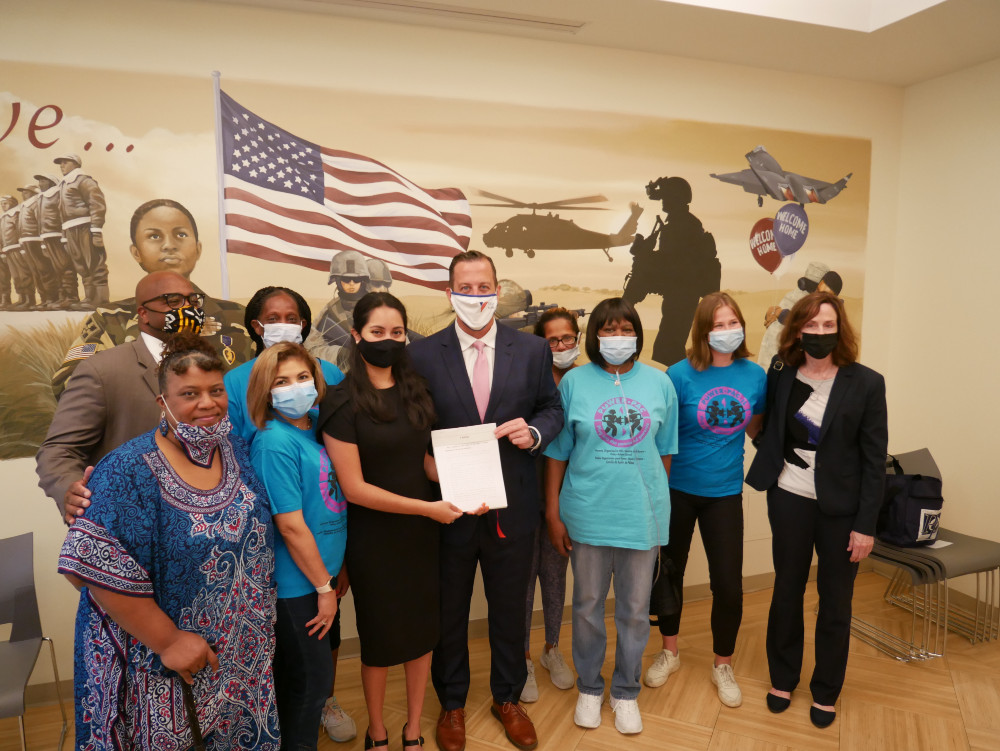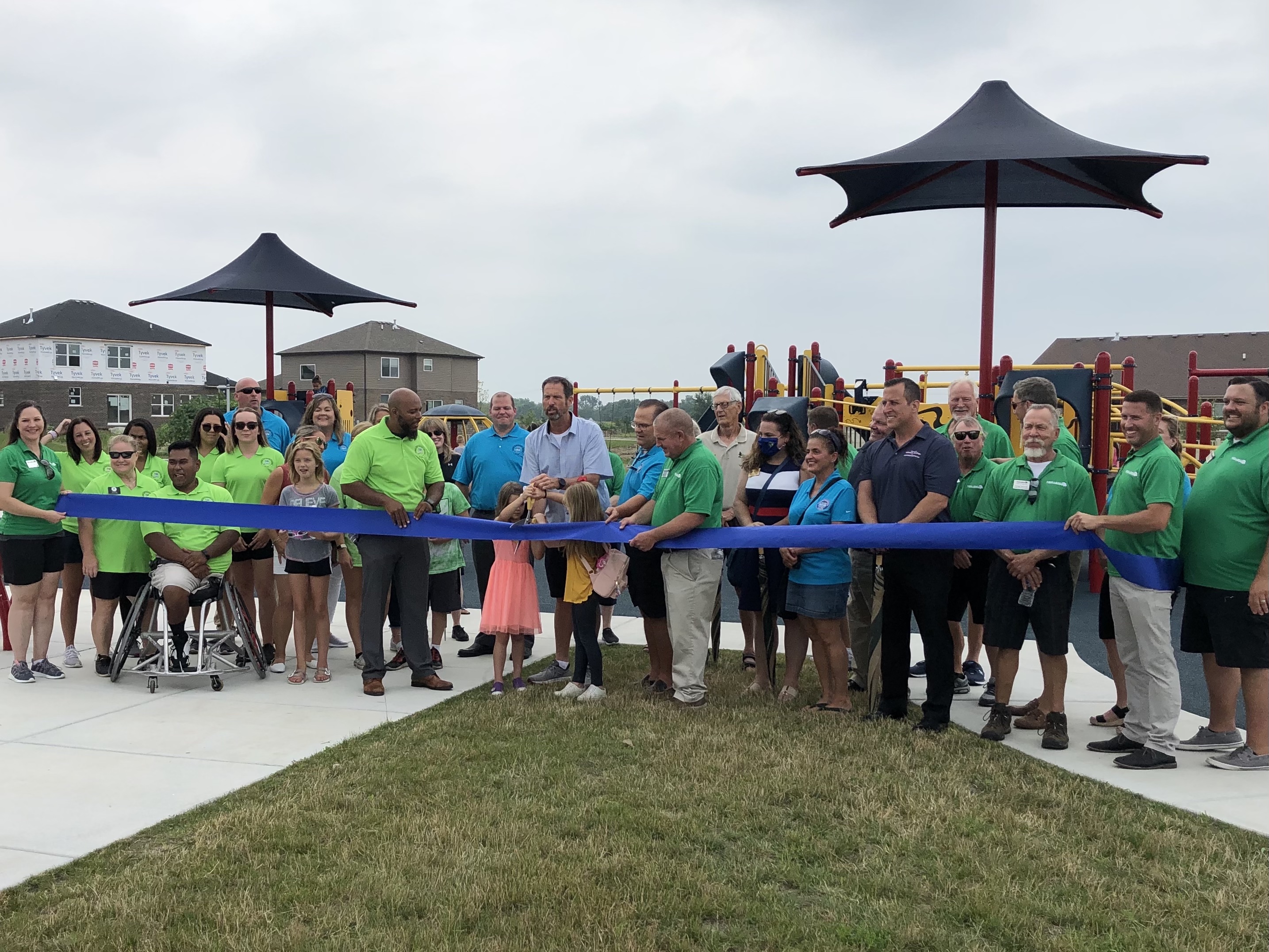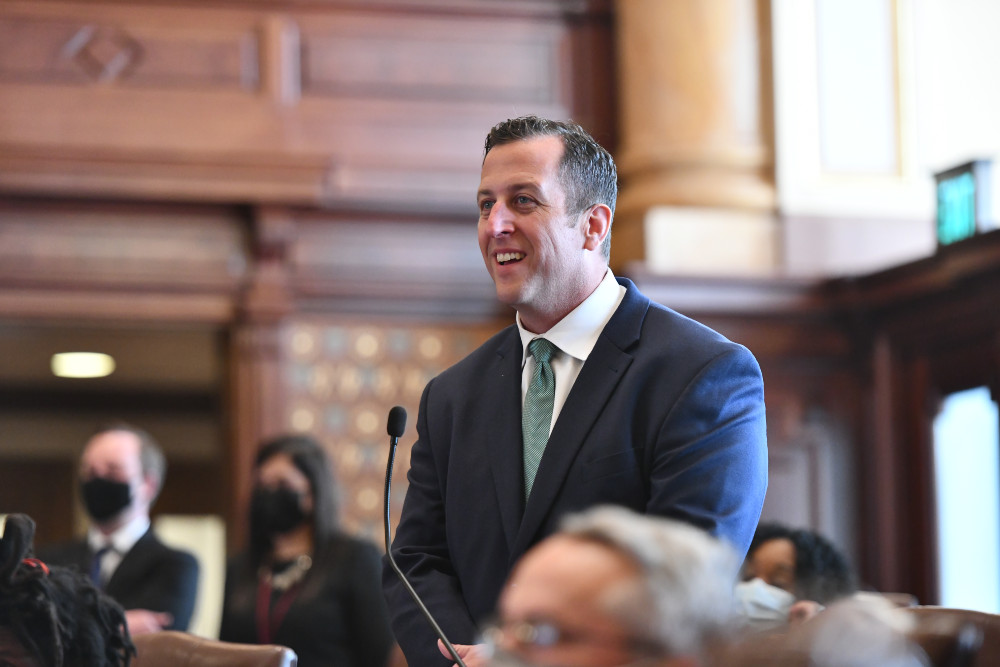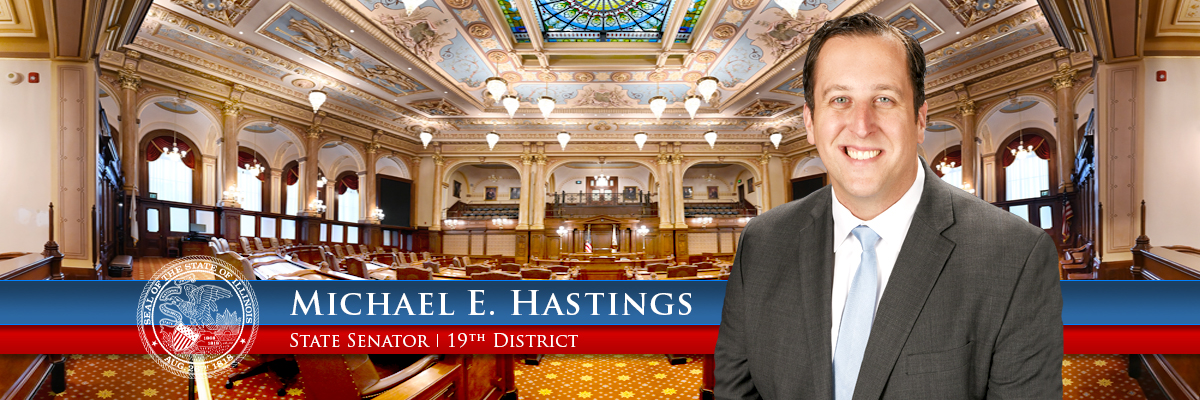Hastings plan to expand access to utility bill relief signed into law
- Details
- Category: Press Releases
 CHICAGO – A measure led by State Senator Michael E. Hastings (D-Frankfort) that would expand access to utility bill assistance programs was signed into law Thursday.
CHICAGO – A measure led by State Senator Michael E. Hastings (D-Frankfort) that would expand access to utility bill assistance programs was signed into law Thursday.
“Adequately cooling a home during these unforgiving summer months can be incredibly burdensome for low-income families,” Hastings said. “Parts of our country have already experienced a historic heat wave this summer. Preparing for extreme weather and giving people the ability to stay safe in their homes has never been more important.”
Under Senate Bill 265 families under 60% of the Illinois median income level would be eligible for the Low Income Home Energy Assistance Program and Percentage of Income Payment Plan. Additionally, the legislation establishes a priority application period for households with children under age 6 and extends LIHEAP and PIPP availability to all eligible low-income residents.
The legislation also encourages the PIPP program to spend at least 80% of its available annual funding and double the 2020 program participation by 2024.
LIHEAP and PIPP offer bill payment assistance to low-income residential utility customers by helping eligible households pay for their gas and electric utility service. Both programs are administered by the Illinois Department of Commerce and Community Affairs.
Hastings, Joyce attend ribbon cutting ceremony for Leigh Park
- Details
- Category: Press Releases

NEW LENOX – State Senators Patrick Joyce (D-Essex) and Michael E. Hastings (D-Frankfort) attended a ribbon cutting ceremony for the grand opening of Leigh Park in New Lenox Thursday.
"Leigh Park is the result of strong leadership and smart allocation of resources," Hastings said. "I am proud to live in a community that prioritizes our families, provides great spaces for our children to play, and that partners so effectively with organizations like the Lincoln Way Special Recreation Association."
This park benefited from a grant through the Open Space Land Acquisition and Development program, resulting in a state-of-the-art playground designed for maximum accessibility, in partnership with LWSRA park district partners from Frankfort, Frankfort Square, Manhattan, Mokena, New Lenox, Peotone, and Wilmington Island Park Districts and other local partners.
“Leigh Park is a collaboration of grants, park district money and fundraising efforts over the past few years,” Joyce said. “This park will enable Will County residents to better enjoy time outside, providing a gathering place for people to come and talk and enjoy and walk and kids play.”
Joyce and Hastings were joined by New Lenox Mayor Tim Baldermann, Will County Board Speaker Mimi Cowan, Will County Board member Tom Weigel, New Lenox park district commissioners and staff, as well as staff from the Lincoln Way Special Recreation Association.
Residents are encouraged to visit Leigh Park located at 1900 Heather Glen Dr. in New Lenox.
Caption information for attached photo: State Senators Patrick Joyce (D-Essex) and Michael Hastings (D-Frankfort) attend the ribbon cutting ceremony for Leigh Park in New Lenox on Thursday, July 22, 2021.
Hastings announces promotional opportunities for local businesses
- Details
- Category: Press Releases

FRANKFORT – In an effort to promote local businesses and assist recovery efforts, State Senator Michael E. Hastings (D-Frankfort) launched an application process for small business tours within the 19th District.
“While we continue to make steady progress in our state’s recovery efforts, we must continue to provide support to our local business community,” Hastings said. “It is my hope that through these tours we can highlight the businesses that make our communities so extraordinary and give business owners a welcome boost in traffic.”
Hastings will take this opportunity to tour restaurants, retail, and businesses that provide personal services, such as barber shops and salons. Applications are now open, and interested business owners can find the application here. Once the application is received, a member of Hastings’ team will respond with additional details.
Representatives of businesses with questions can call Hastings’ office at (815) 464-5431 or email
Hastings to host second annual A Taste of Victory Job Fair
- Details
- Category: Press Releases
FRANKFORT – To assist local residents who wish to either change or begin careers, State Senator Michael Hastings (D-Frankfort) is partnering with Victory Apostolic Church in Matteson to host the second annual A Taste of Victory Job Fair.
“As we continue to rebuild our economy, it is important for residents to have access to the best possible resources for a job search,” Hastings said. “Good paying jobs are the backbone of a strong economy and creating them for our people must be prioritized.”
The event will be held at Victory Apostolic Church in Matteson on Saturday July 31 a.m. from 11:30 to 3:30 p.m. Job seekers will be connected to companies that offer good paying jobs with benefits and opportunities for career growth. This could mean transitioning into a new career path, whether it’s in response to the COVID-19 pandemic, related changes in the labor market, or someone is simply seeking to transfer their skills to another career path.
National Able Network and HIRE360 Chicago will be on-site to deliver high-impact training sessions, and we are in search of additional partners who are interested in developing their staff, meeting with job seekers to advertise their opportunities or programs, or to provide promotional partnerships to assist in highlighting this exciting event.
Job seekers can register for the event here and interested employers can register here.

More Articles …
Page 38 of 57



